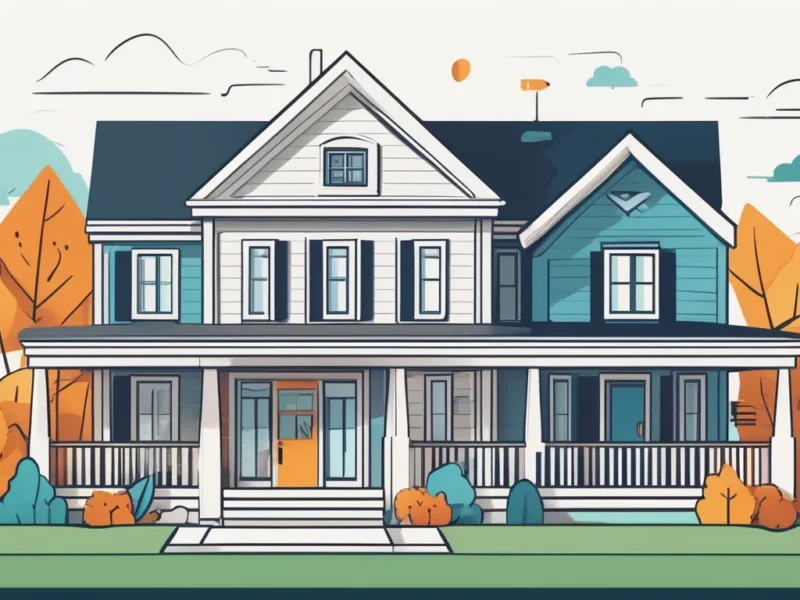Purchasing a home is a significant financial decision, and securing the right mortgage is a critical step in the homebuying process. With fluctuating interest rates and an ever-changing housing market in the USA, many first-time homebuyers and seasoned homeowners make common mortgage mistakes that can have long-lasting financial implications. In 2025, it is more important than ever to be educated and cautious when it comes to mortgage decisions.
Avoiding these five common mortgage mistakes can save you time, money, and stress in the home buying process.
1. Not Shopping Around for the Best Mortgage Rate
One of the most common mortgage mistakes that people make is not shopping around for the best mortgage rate. Many homebuyers assume that their bank or the first lender they speak to offers the best deal, but this isn’t always the case. Interest rates can vary significantly between lenders, and even small differences in rates can lead to huge financial implications over the life of the loan.
In 2025, as mortgage rates continue to fluctuate, it’s important to take the time to compare offers from several lenders. When you shop around, you give yourself the chance to find the best rates, terms, and fees. Here are some tips for shopping around effectively:
- Request quotes from multiple lenders: Reach out to at least three to five lenders to get a variety of options. You can check with traditional banks, credit unions, and online lenders.
- Understand the Annual Percentage Rate (APR): While the interest rate is crucial, the APR includes the total cost of the loan, including fees. This is often a better indicator of the loan’s true cost.
- Consider loan types: Fixed-rate, adjustable-rate, and government-backed loans (such as FHA or VA loans) all have different benefits. Make sure you’re evaluating the best loan type for your financial situation.
Remember that even a small difference in interest rates can add up to thousands of dollars over the life of a loan, so it’s essential to do your homework before committing to a lender.
2. Overlooking the Impact of Your Credit Score
Your credit score plays a vital role in the mortgage process. It affects not only your ability to qualify for a loan but also the interest rate you’re offered. Many homebuyers make the mistake of assuming their credit score won’t make a significant difference, but in reality, it can be the deciding factor.
In 2025, lenders will continue to closely scrutinize credit scores when assessing mortgage applicants. Here’s what you should keep in mind:
- Know your credit score: Before applying for a mortgage, check your credit score. You can get a free credit report from major credit bureaus. Aim for a score of at least 620 to qualify for a conventional mortgage, but a score of 740 or higher will likely get you the best rates.
- Improve your score before applying: If your credit score is below your target, take steps to improve it before applying for a mortgage. This can include paying off credit card debt, reducing your credit utilization, or disputing any inaccuracies on your credit report.
- Understand the impact of your credit score on rates: In 2025, lenders may offer different interest rates depending on your credit score. Higher credit scores typically result in lower rates, saving you money in the long run.
If your credit score is lower than you’d like, it might be worth delaying your mortgage application until you can improve your score. This could result in a better interest rate and more favorable loan terms.
3. Underestimating the Total Cost of Homeownership
Another common mistake that many homebuyers make is underestimating the true cost of homeownership. A mortgage payment is just one part of the equation, and many buyers fail to factor in other expenses that can significantly impact their budgets.
In 2025, homeownership costs have continued to rise in many areas, and buyers should be aware of the following additional expenses:
- Property Taxes: Property taxes can vary widely depending on where you live and can add a significant amount to your monthly expenses. Be sure to research the property tax rates in the area where you are buying a home.
- Homeowner’s Insurance: Mortgage lenders require homeowners to have insurance, but it’s important to shop around for the best rates. Homeowner’s insurance can cover damage to your property, theft, and liability, but premiums can vary greatly.
- Private Mortgage Insurance (PMI): If you put less than 20% down on a conventional mortgage, you’ll likely be required to pay PMI. This is an additional cost added to your monthly payment until you’ve built enough equity to remove it.
- Maintenance and Repairs: Homeownership comes with the responsibility of maintaining the property. Budget for repairs, regular maintenance, and unexpected issues like appliance breakdowns, plumbing problems, or roof repairs.
It’s essential to create a realistic budget that accounts for all these costs. Be sure to factor them into your decision-making process to avoid financial strain down the road.
4. Ignoring Pre-Approval and Getting Pre-Qualified Instead
While getting pre-qualified for a mortgage might seem like a good first step, it’s not the same as getting pre-approved, and this could cost you valuable time during the home buying process.
Pre-qualification is a simple process where a lender gives you an estimate of how much you can borrow based on basic information you provide, like income, debts, and assets. However, pre-approval is a more in-depth process that involves the lender verifying your financial information, including your credit score, income, employment, and debts. Pre-approval gives you a more accurate idea of how much you can borrow and shows sellers that you are a serious buyer.
Here’s why you should focus on pre-approval instead of pre-qualification:
- Stronger negotiation power: A pre-approved buyer is viewed as more credible and serious by sellers. You’ll have a better chance of securing a home in a competitive market.
- Faster closing process: Since much of the paperwork is already in place, being pre-approved can expedite the closing process, reducing the risk of delays or surprises.
- Accurate budget: A pre-approval provides a clear understanding of how much you can afford, which will help you avoid overextending yourself financially.
Make sure to get pre-approved before you start shopping for homes. This will make you a more competitive buyer and prevent any surprises when you’re ready to make an offer.
5. Failing to Consider Future Financial Changes
Finally, one of the biggest mortgage mistakes that homebuyers make is failing to consider future financial changes. Life is unpredictable, and it’s important to choose a mortgage that won’t leave you financially strapped if your circumstances change down the road.
In 2025, many buyers are still dealing with economic uncertainty, including fluctuating employment, inflation, and rising living costs. Here’s what to consider:
- Interest rate changes: If you’re considering an adjustable-rate mortgage (ARM), remember that your rate could increase after the initial fixed period. This could result in higher monthly payments, so make sure you can afford the payments if rates rise.
- Job stability: Consider how secure your job is and whether you’ll be able to make your mortgage payments if your income changes. It’s a good idea to have an emergency savings fund in place before committing to a mortgage.
- Family changes: If you plan to expand your family or anticipate any major life changes, such as a career change or relocation, think about how those could affect your ability to pay the mortgage.
- Future refinancing: Consider whether you will be able to refinance in the future if needed. Refinancing could help reduce your mortgage payments if interest rates drop or if your financial situation improves.
Before committing to a mortgage, evaluate how it fits into your long-term financial plan. Choose a mortgage that you’ll be able to manage if your circumstances change, and ensure you have a cushion for unexpected costs or income changes.
Conclusion
Securing the right mortgage is one of the most important decisions you’ll make in your lifetime. By avoiding these five common mortgage mistakes in 2025, you’ll be better positioned to make sound financial decisions that will benefit you in the long term. Always take the time to shop around for the best rates, monitor your credit score, consider all costs of homeownership, seek pre-approval, and plan for future changes in your financial situation. With proper planning and preparation, you’ll be able to secure a mortgage that aligns with your goals and allows you to enjoy your new home without unnecessary stress.


